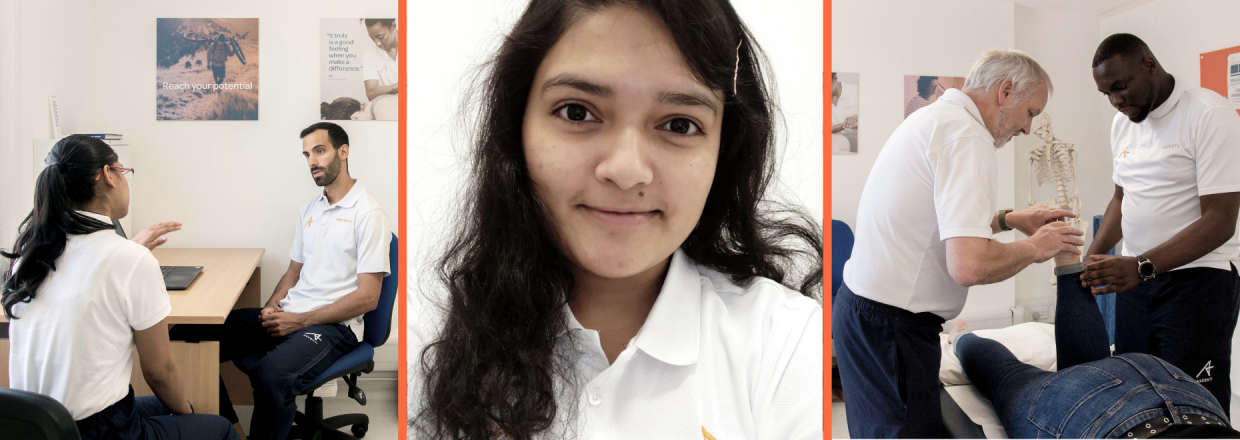Being a mentor is a rewarding role where you can support your peers in their development whilst learning new skills.
Here, Hetal Umaria, describes what a ‘day in the life of’ a Clinical Mentor looks like and how Ascenti supported her in becoming a mentor.
What is your current role and when did you join Ascenti?
I joined Ascenti in February 2022 as an MSK Physiotherapist and progressed to a Clinical Mentor in January 2023.
What clinics do you work from?
I work in a clinic in Dartford which is part of the South London and Kent area. Part of my Clinical Mentor role is I get to travel across the Kent region to visit and provide support to our physiotherapists.
What is involved in a typical day as a Clinical Mentor?
As a Clinical Mentor at Ascenti, you will spend part of your time treating your own clinical caseload of patients, while also supporting the development of other physiotherapists.
To ensure I have more structure in my role, I have a set day every week where I focus on my mentoring responsibilities. This primarily involves addressing urgent queries, both clinical and non-clinical, and having dedicated face-to-face or group sessions with my mentees. These sessions aim to provide guidance, support, and feedback to physiotherapists.
Other tasks involved in my role include planning diaries for the 12-week cycle of mentoring and assessing the performance of physios through observations, case reviews and assessments. Constructive feedback is a crucial component of being a Clinical Mentor as it helps mentees identify areas for improvement and helps develop their competence.
Why did you become a Clinical Mentor?
The main reason I became a Clinical Mentor is because I have a passion and a strong desire to help others develop their skills and knowledge. I believe that mentoring allows a collaborative and supportive environment within Ascenti, ultimately leading to better patient care.
Another major positive of becoming a mentor is it’s a way for me to continue learning and growing in my own career.
Can you talk us through one of the biggest challenges of your role?
As I started my mentoring journey one of the most significant challenges was finding the right balance between guidance and autonomy as it requires a deep understanding of each mentee’s unique needs, learning style, and pace of development.
Also, time management can be another challenge, as you have to manage clinical responsibilities alongside mentoring which can be demanding but it is very rewarding when you see the development of your peers.
What are the three best bits about your role?
It is great that I can witness and be a part of the development of my mentees careers whilst also working on my own professional growth.
Knowledge sharing is part of my role that is a massive benefit as it works as a two-way street where both myself and my mentee’s can learn from each other.
I really enjoy that as a mentor you are constantly meeting new people and building relationships with other physiotherapists at Ascenti.
What support do physios get if they want to be a mentor?
Physiotherapists who want to become mentors receive valuable support helping them succeed in their mentoring roles. This includes weekly Physiotherapy Development Lead led mentor meetings where we connect with other mentors to share experiences, seek advice, and collaborate on mentoring-related challenges.
We also have regular mentor workshops and there are resources available on our intranet system that can be accessed at any time to provide us with guidance and support.
What experience does someone need to be a mentor at Ascenti?
Everyone who wants to become a mentor needs to have a reasonable amount of experience as a physiotherapist, but most importantly you should have experience in providing support, whether this be in your in personal life or professional career. If you enjoy seeing others succeed, then mentoring is the perfect role for you.
